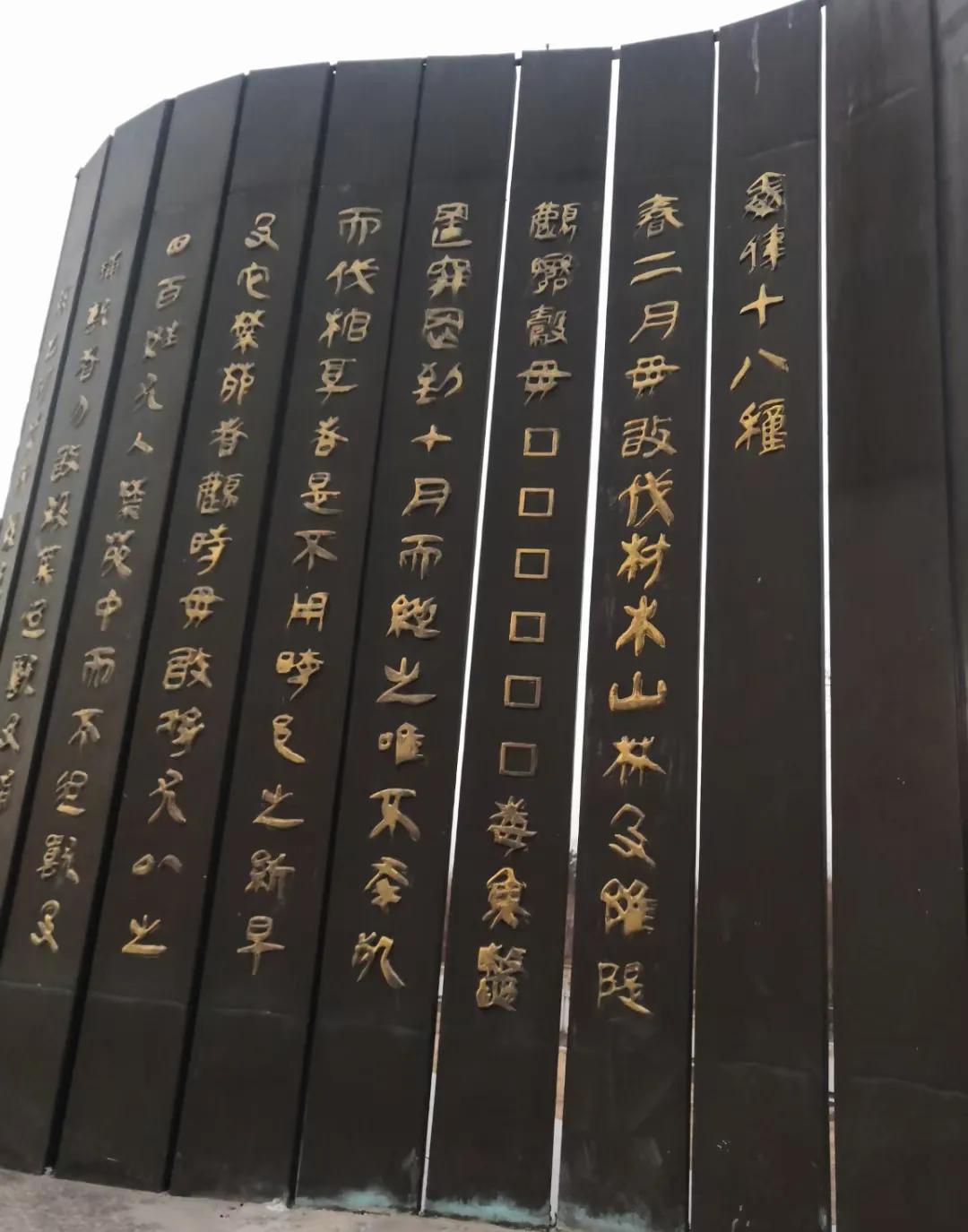Yun MengqinJian's "The Way of officials" in the short text of "Eliminating Harm and Xingli", each sentence is four words, the content is mostly a common word used by officials, presumably for those who learn to be officials.
【Original】
● Whoever is the way of an official must be refined (pure) and upright, prudent and firm, and judge not (without) selfishness, subtle (fiber) inspection, quiet and not harsh, and reward and punishment in trial. Strict and not violent, incorruptible and not slashing, not to win again, not to be angry (decisive). Be tolerant and faithful, be peaceful and resentful, and repent. He (ci) do not go down to the mausoleum, respect the upper do not offend, listen to (advice) do not stop. Judge the wisdom (knowledge) of the people's ability, be good at the people's strength, work hard (rate), and use the bridge (correction) to make it. Forgive him and stop wanting to go (willing). In the middle is not square, the name is not chapter; outside is not a member (circle). Honor the virtuous and cultivate sins, and the original (wild) is like the court. Cut off. Anger can be happy, joy can be mourned, wisdom can be foolish, strong can decline, (courage) can bend, rigidity can be soft, benevolence can endure, strong and good can not be. Judge the ears and eyes, and look at the ears of ten ears. Happiness must be abstained, and there is no remorse. Take loyalty as the most important thing, and be cautious about the future. Gentlemen are not sick (also), but are sick (also). The same can be different. No poverty, no censorship, no decay. Lincai (wealth) sees profit, do not take the sentence (Gou) rich; when it is difficult to see death, do not take the sentence (Gou) to avoid. If you want to be rich(too) even, you cannot be poor; if you want to be rich (too) you are too big, you cannot get it. Do not rejoice in the rich, do not be poor, and do not walk in the body, and live (evil) to be blessed.
All officials must be honest and upright, cautious and tenacious, selfless in their handling of affairs, clearly aware of what is going on, and the people should not administer harsh government, and rewards and punishments should be clearly distinguished. Strict management without tyranny, honest without torture, not overly competitive, not determined by anger. Be tolerant of the faithful, not resent others, and not make mistakes again and again. Treat subordinates with kindness and not bullying, respect and do not offend their superiors, and open up their ways of speech and be good at receiving advice. It is necessary to understand the talents of the people, be good at measuring the strength of the people, take the lead in labor, and correct their words and deeds with upright virtues. Thus helping them to forgive punishment and remove desire. If you are not square, your reputation cannot be revealed; if you are not smooth and thoughtful, you will easily bring disasters. There are virtuous and despicable people, and the court is the same outward. Severance of ties does not necessarily necessitate torture. Anger can also rejoice, happiness can also grieve, great wisdom can be foolish, strength can also be restrained, courage can also bend, fortitude can also be flexible, benevolence can also be stoic, forced bullying can not be. It is necessary to open up the audiovisual and listen as much as you see it in person. Abstain from happiness and do not do wrong. Take the faithful as the pillar and think carefully. Don't gentlemen have flaws and mistakes? You can't just let it go. The same situation results are different. You can't be poor, you can't be bored, you can't be weak. When encountering wealth and interests, do not seek to be rich and wealthy; when encountering difficulties with others, they are unscrupulous and greedy and avoid. If the poor cannot be moved, if they do not covet wealth and nobility, if they do not hate poverty, and if they are practicing self-cultivation, there will be no calamity and their blessings will last forever.
